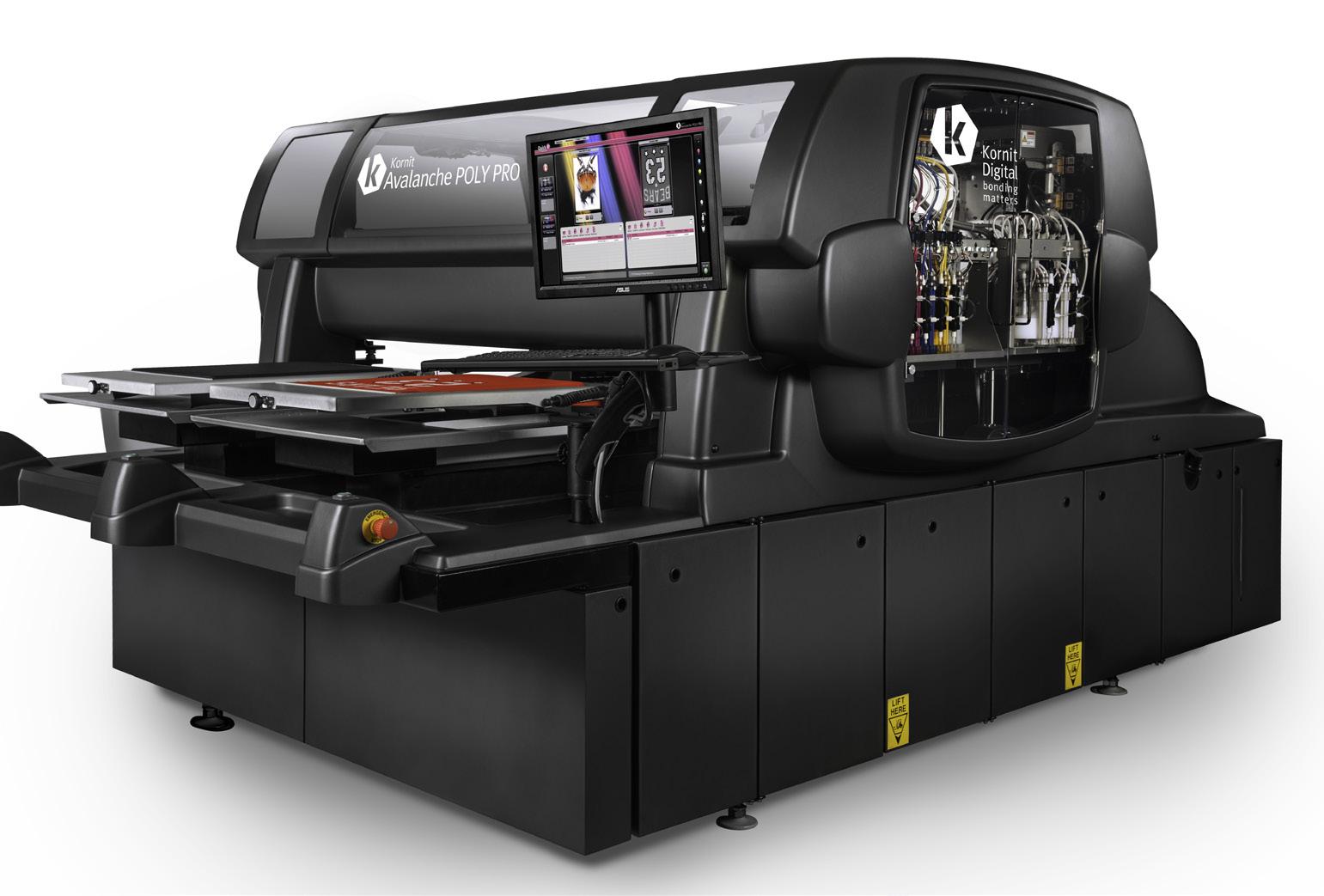
4 minute read
Tokyo’s Image Magic Installs Twin Kornit
The two new direct-to-garment systems for polyester is expected to attract new customers and supplement the Japanese company’s 40% year-over-year growth.
Advertisement
Kornit Digital announced that Tokyobased Image Magic has installed two Kornit Avalanche Poly Pro systems, expanding its longstanding digital direct-to-garment capabilities to imprint polyester and poly-blend fabrics. The move supplements Image Magic’s continuous development of internal efficiencies, and increases capacity for an operation that has observed 40% year-over-year growth. Image Magic serves a mix of corporate clients, including some of Japan’s leading apparel brands, and general consumers via a predominantly internet-based sales model.
Established in 1995 as a print shop committed to producing one-off jobs

with the efficiency of mass production - and avoiding costly inventory - Image Magic has long sought an alternative to slow and inconsistent means for imprinting synthetics.
Kornit’s Avalanche Poly Pro is the first digital direct-to-garment print system developed specifically for such materials.
“We have long printed cotton materials on demand, but delivering polyester t-shirts and sports apparel in a consistent and timely manner remained a challenge,” said Makoto Yamakawa, Image Magic CEO. “Kornit’s Poly Pro system offers the best possible quality, at a speed to match our recent

increase in orders, which we expect will continue as more major sports events, most notably the Olympics, come to Japan.”
“I was impressed by the smooth hand feel,” added Yutaka Bono, their Director of Development. “The Poly Pro is ideal for handling a wide variety of products in small quantities, which should help us attract new customers, particularly from the sports industry.” Using the eco-friendly NeoPigment™ Olympia ink set, Kornit Avalanche Poly Pro was developed to extend digital design complexity, colour gamut, and durability to polyesters, which have grown in popularity as a result of sportswear and “athleisure” trends.
“Kornit is breaking down boundaries between what the consumer demands and what print shops can deliver at the speed of e-commerce, and our Poly Pro system embodies that effort completely,” said Andy Yarrow, President of Kornit Digital Asia Pacific. “Image Magic has achieved considerable growth by giving consumers what they want with a smart, lean business model, and we are proud they’ve chosen Kornit as a partner in taking their next steps forward.”

According to Yamakawa, digital printing has been key to his business’s growth, and he foresees Kornit’s technology building on that strength: “We’ve been inviting partners and customers to our facility to demonstrate what the Poly Pro can do, and as we expand to a larger facility, we anticipate investing in more of these systems,” said Yamakawa.

The Advent of Athleisure
Sports is no longer just an activity one does for health and wellness; it has become a lifestyle. The term “athleisure,” combining the words “athletic” and “leisure,” has quickly become a trending word in recent years. According to data and analytics research group GlobalData, the athleisure market is poised to expand by 9% worldwide, and is set to outperform the global clothing and footwear market beyond 2023. The analysis also revealed that 68% of consumers who purchased sports clothing for exercise also wore them for eating out or shopping.
Over the last two years, the athleisure trend has risen as demand for comfort, performance and style has driven the need for a multifunctional wardrobe. In addition to their functional considerations, sportswear must also be moisture-wicking and stylish. In tropical Southeast Asia especially, comfort is an even more important factor.
People can wear athleisure apparel at the gym, for a date, or to work if paired properly. Most of them are made of polyester, which is strong and durable with good elasticity. Polyester holds its shape well, and is also corrosionresistant, easy to wash and dry. Second only to cotton, polyester is one of the world’s most popular fabrics for t-shirts. The growing demand for athleisure also sets off a new round of the polyester boom.
Printing on polyester fabrics has always had several challenges: insufficient colour depth and clarity, easy to bleed, the hand feel of the printed area is somewhat stiff, etc.
Released by Kornit Digital last year, the Kornit Avalanche Poly Pro uses a stateof-the-art ink specifically designed for polyester printing, suitable for all types and colours of polyester fabrics. The process has also been optimized to two
Makoto Yamakawa, Image Magic CEO

steps: upload the document and print. The labour cost is reduced to less than one minute! By comparison, traditional screen printing takes at least 25 minutes from pre-treatment to printing the final product.
Additionally, Kornit Avalanche Poly Pro offers the following benefits: • Prevents dye migration • Retains the fabric’s original properties and characteristics • Meets the durability requirements for sports applications • Unlimited design creativity • Profit from the very first impression
NeoPigment Olympia ink — Unique TM innovative ink for high-quality printing on polyester: • Strong and soft at the same time, the poly enhancer improves durability and hand-feel • A wider colour gamut, solid colour coverage, and precise Pantone colourmatching • A high L value and opacity for enhanced reproduction of bright prints • Increased strength and flexibility to improve print elongation










